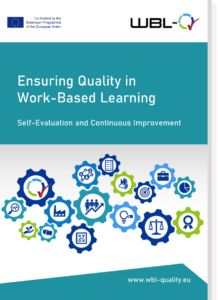
Publication of the Handbook
The WBL-Q handbook offers practical insights in how the quality assurance in work-based learning can be planned and implemented. It contains an introduction to work-based learning in a European VET arena, an approach to quality assurance in general and how quality criteria can be grasped using the EQAVET Framework as well as the PDCA Cycle. Going more into detail, the handbook also offers strategies to identify gaps and potentials in one's own company and then assess and tackle them using the WBL-Q online tool. Finally, best practice examples are presented.
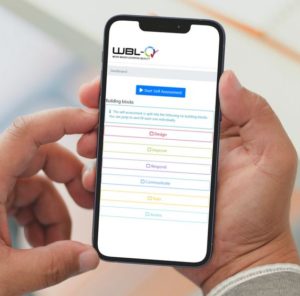
Launch of Beta Testing Phase
The Self-Evaluation and Stress Test Tool is finally ready for testing! As of April 2022, the beta-version of the online tool is ready to be tested by the target group. In this phase, we are building the basis for the quality benchmarking, because at least 50 companies in each of the partner countries will participate in the pilot phase.
Online Learning, Teaching, and Training Activity
The WBL-Q partnership consisting of the core project team and further staff has met online from February 15th to 17th 2022. Together, they reviewed the already reached achievements as well as the upcoming steps. The two main focus points were the WBL-Q Self-Assessment and Stress Test Tool, which was presented in its Beta version. Furthermore, the current draft of the handbook was presented. All participants were asked to provide in-depth feedback during and after hands-on working sessions with both products.

Testing the Alpha Version
The Self-Assessment and Stress Test Tool was tested with 5 persons per partner country (30 in total) in its first Alpha version. This version and its testing focused mainly on the functionality, the structure and usability of the online tool. The feedback of the internal and external stakeholders was collected and channelled into a revision phase to update the online tool.

Outlining the WBL-Q Handbook Structure
The WBL-Q project foresees a handbook to support WBL responsibles with a guideline to apply quality assurance strategies in their processes. The handbook does not only provide an instruction and deeper insight into the usefulness of the WBL-Q Self-Assessment and Stress Test Tool, but most importantly a comprehensive and over-spanning approach to quality management in work-based learning on a European level.
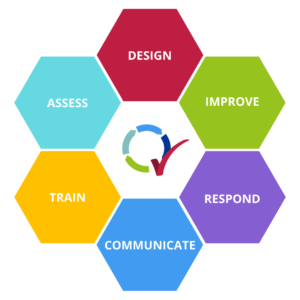
Finalising the Self-Assessment and Stress Test Tool Questions
The partnership has overcome the hardest task in the project. Together, they finalised 68 interconnected self-assessment questions in 22 quality criteria and 6 EQAVET Building Blocks, including the answer modes, answer options and the scoring. As a final step, the sensibility of each criterion to one of the identified megatrends was estimated.

Defining Megatrends That Affect Work-Based Learning
Work-based learning in companies is bound to future developments of larger scale, hence one aim of the WBL-Q partnership is to allow responsible persons to stress test their system against five identified megatrends: Demographic Change, Digitalisation, Inclusion and Diversity, Attractivity of VET, Sustainable and Solidaric Future.
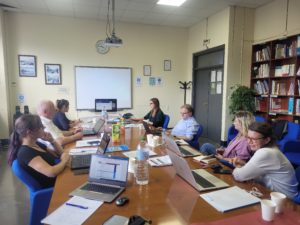
Transnational Partner Meeting in Bilbao
On September 30th and October 1st 2021, the partnership met in Bilbao (Spain) for their third partner meeting in a hybrid setting (two partners joined via Zoom). Together, they worked in-depth on finalising the questions for the WBL quality self-assessment tool, discussed about relevant megatrends, and agreed upon the structure for the handbook.

Drafting the Self-Assessment and Stress Test Tool
The core of the WBL-Q project is an online tool that allows a self-assessment of the quality of work-based learning processes in a company by the responsible person. Additionally, the WBL system is analysed in relation to five megatrends that affect the future of work-based learning. The partnership has decided to base the whole tool on the EQAVET Building Blocks (originally addressing VET providers, not WBL responsible staff in companies). The next step is to deduct and operationalise relevant criteria in each Building Block and develop appropriate questions for the self-assessment.

Finalising the Investigation Research Study
More than 300 persons involved in work-based learning processes have participated in the investigation and the partnership has now analysed their answers given in interviews and an online questionnaire. The full report is now published in English and concise summaries in all partner languages: [EN] [DE] [ES] [SI] [HU]
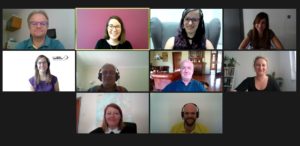
Virtual Partner Meeting
On June 10th & June 11th, the partnership met online to discuss the current state of the project. The investigation research survey will soon be published and the preparations for the self-evaluation tools are in full speed.
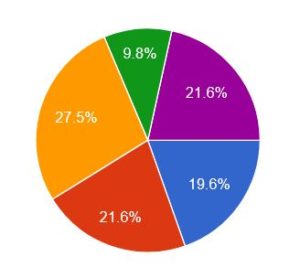
Reaching out to more target groups
After reviewing the results of all interviews, a comprehensive online survey has been developed and distributed. In each partner country, 50 WBL responsible persons, representatives from VET organisations and WBL learners are invited to rate quality indicators and share their opinions in February and March 2021.
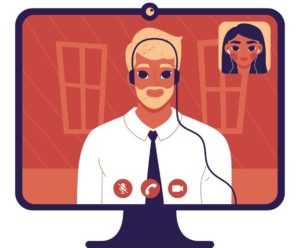
Diving into the investigation research study
The leading partner, Spectrum RC, has sent a research template in December 2021 as well as guidelines for partners to complete in field research phase featuring 5 expert interviews in each partner country. Time to involve the target group!
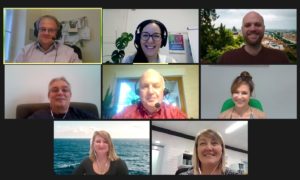
Project Kick-Off
The project has been officially kicked-off in an online partner meeting on November 10th & 11th 2020. For some partners it was a pleasant reunion and new partners were warmly welcomed by the well-established partnership.
Project Background
The WBL-Q project idea is founded on two predecessors: the ECVETgoesBusiness project (2015-2017) and the WBL Accelerator project (2018-2021). Both projects have provided deep insights into the world of work-based learning and have contributed to facilitating the communication between WBL actors and to the acceleration of common WBL standards in the EU.


